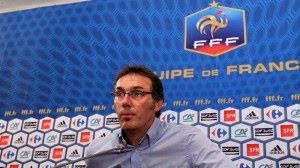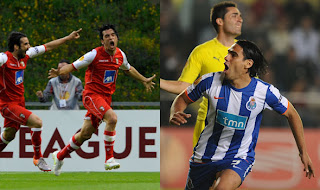
“I’m going to take my talents to South Beach”.
Those were the words that shocked a nation as a year of speculation, unlike anything America had ever witnessed in a purely sporting context, drew to a close.
“The Decision” – the hour-long prime time TV programme arranged to announce that LeBron James would be playing his basketball with the Miami Heat for the next six years – was ridiculed and despised in equal measure.
James had been the home town guy made good. A phenomenon during his high school years, he took the increasingly frequent step of by-passing college basketball to head straight into the NBA. When his home state franchise, the Cleveland Cavaliers, won the NBA draft lottery to secure the first pick of the 2003 draft they wasted no time in declaring James would be staying in Ohio.
He seemed destined to end Cleveland’s 47 year wait for a title in any of the four major US sports. As a 22-year-old he single-handedly dragged them to the 2007 finals, producing one of the all-time great performances by scoring Cleveland’s last 25 points in game five against the Detroit Pistons to get them there.
Yet, as Lebron’s star rose – and the expectation with it – year after year he came up short in the playoffs.
In 2009 James won his first Most Valuable Player of the league award, the Cavaliers secured the first seed in the playoffs with a franchise record 66 regular season wins and they even cruised through the first two rounds of the play-offs without dropping a game. When they met Orlando in the Eastern Conference finals, however, they came unstuck. LeBron’s one man show not enough.
Lessons were learned, or so they thought. The Cavs spent big in trying to build a team around James, including bringing in an aged Shaquille O’Neal, but it made no difference. Cleveland were again bounced in the playoffs, a round earlier this time by a veteran Boston Celtics side. LeBron’s performance in the elimination game at the Boston Garden one of his worst as a professional. As he left the court that night and pulled the Cavs jersey from his back, many a Cleveland fan feared they would never see him in one again.
Yet, the process became even more interminable than they could ever have imagined. Their hero kept them and the five other teams who had cleared the salary cap space to compete for his signature in the dark for weeks until on national television “The Decision” was delivered.
As it turned out the real decision had been made a long time ago. James had been convinced by good friend and fellow All Star Dwayne Wade to live the high-life in Miami and become arguably the most feared one-two combination in NBA history.
James was destroyed in the media for the manner in which he had stabbed his home town in the back. The one time declared “Chosen One” was now he was the most reviled one. In Cleveland his jersey was burned, a 212-foot wide billboard of him pulled down and even the Cavs owner Dan Gilbert took a swipe of LeBron’s play-off performances, declaring that the Cavaliers would win a Championship before LeBron did.
Wade and James were joined by a third All Star, Chris Bosh, as Miami tried to replicate the Big Three formula that had brought the Celtics the title in 2008. Not deterred by the degree of vitriol aimed at them, the Heat hosted a championship winning-style celebration for their arrival.
Doubts were raised over whether a team of three stars and very little else could succeed. Indeed they did have their troubles in the early part of the season. A 9-8start a far cry from the prediction of one prominent pundit who claimed they would only lose 10 games all year.
Yet, as James knows more than most, regular season record means little when it comes to playoff time. With the Heat cruising through the playoffs, winning all three of their series to date 4-1, James has proved to be everything his detractors claimed he wasn’t. No one doubted his talent but they claimed he couldn’t close a game or bring it when it really mattered in the playoffs. Match winning performances in games four and five against both the Celtics and Chicago Bulls have well and truly put that debate to bed for now.
Yet, as remarkable as it sounds, James’s story of vindication may not even be the biggest story of this year’s playoffs. For across the court this evening Lebron, Wade and Bosh will be confronted by a 7ft tall German looking to pen the final note on his own story of redemption.

Dirk Nowitzki has been one of the leading NBA players for a decade. Like James did in Cleveland, he has consistently taken the Dallas Mavericks to the playoffs without much of a supporting cast, only to suffer consistent heartache in April and May.
In his only previous trip to the finals in 2006 he also came up against the Heat. Dallas were favoured and sped into a 2-0 lead in the series before coming up against an inspired Wade, with a little helping hand from the officials, as the Heat won the next four games to claim the title.
Until this year that series had been a career defining one for Nowitzki. He was bullied throughout the series by Udonis Haslem, leading to accusations, levelled against many European players in the NBA, that he was soft.
However, the man from Würzburg performances in the past few months, particularly in the 4-0 sweep of the Los Angeles Lakers in the Western Conference semi-finals, have reopened the debate over where he belongs in the pantheon of basketball greats. Most analysts have already declared him as the greatest international player in NBA history, but at 33 time is running out for him to claim that elusive title.
James and Nowitzki have taken very different paths to get to this point, but both are now just four games away from fulfilling their destiny. The German has America on his side, however, should Nowitzki fall short against Miami again, “The Chosen One’s” decision will have been vindicated.




